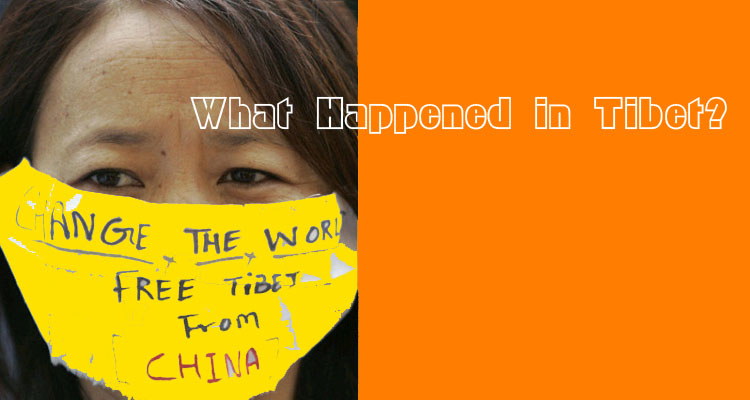
Moderator: How should our government or other countries deal with this problem? And do you have any good ideas to solve this problem?
Deok-hyo: I think powerful countries or the UN should take correct actions in this situation. We need a stronger measure such as an embargo. I wish the UN or an international human rights organization could help to control the situation. At this moment, stopping the violence and military power is most important.
Jin-a: I also think the UN or any civic groups’ role is crucial. One of the UN’s objectives is to keep world peace. And I recommend Tibetans very carefully try to get peaceful autonomy even though it would not lead to a complete separation. There is a similar situation in Spain. The Catalans, one of minorities in are restoring their authority with peaceful compromise with the Spanish government. I think it is a more desirable way of resolving the issue than the Chinese one in .
Sung-han: Now Tibetans need our help, and our government should urge that to stop suppressing Tibetans so hard. If we remain indifferent now, we could confront another form of ’s Northeastern Project someday in the future.
Ga-young: Our government should take action to stop the violent actions of . Boycotting the Beijing 2008 Olympic Games can be one of the best methods to appeal to . If all the countries don’t attend the whole program of the Olympics, would reconsider the matter. I hope decided not to attend the Olympics.
Chul-woong: In the long view, I surely advocate the independence of . and should come to an agreement in a peaceful way. I think individuals’ effort to support would also have much influence on the process for reaching a peaceful agreement. I heard several civic groups in Gwangju plan to stage relayed one-man protests. I think it is a very effective way of expressing Korean people’s support.
Conclusion
We talked about the Tibetan independence movement. There appeared various opinions and ideas. Firstly, some members gave priority to Tibetans’ desire to be independent and their human rights. Especially, as citizens of Gwangju and university students, we felt sad and empathized, reminded of the 5.18 Democratic Uprising followed by the tragedy. In that we also had the history of colonialization. The government should take action for . Secondly, some of the members worried about our country’s weak standpoint internationally to speak out. Considering the problem of a nuclear and economic relations with , our government has no choice but to keep silent. So, rather than on the level of government, NGOs or civic groups should be more active. In conclusion, we all agreed to the importance of human rights and peaceful agreement at all costs.
A new round of independece movements broke out in
Moderator: is suppressing Tibetans’ demonstrations so strongly. It is related to various factors: economic power, unity of , etc. Let’s talk about ’s reactions and situations.
Sung-han: The
Chul-woong: I think the reason of ’s hard line is that once is separated, many other ethnic minorities would get encouraged to be independent, threatening ’s unification. Then it can cause a crisis of in terms of economics and politics.
Deok-hyo: I think the Chinese government’s violent and repressive measure against Tibetans is wrong, even though they need it for unifying the nation. They are neglecting human rights and the will of independent Tibetans. If Tibetans don’t want to be a part of anymore and display their will so strongly, should consider it and try to resolve it in a peaceful way. I don’t mean should give freedom to , but should consider it sincerely and not take violent actions. The minorities in have to try to improve their own strength so that they can live alone without ’s support.
Moderator: People all over the world know of the crackdown on Tibetans, but most countries don’t advocate Tibetans because they want to protect their own national interests in relations with . In this situation, we can see there are two values inevitably opposed: should we give priority to each country’s national interests or to Tibetan independence will and human rights? Let’s talk about it.
Jin-a: I think our government had better keep silent about the situation of because the most important responsibility of nations is to protect their citizen and defend their interests. If we appeal to about the clash, the relationship between and would get worse. Tibetans’ will to be independent is important but our country is not powerful enough to help them. We should prioritize our national interests.
Ga-young: Needless to say, it is important to protect human rights. Human rights should be prioritized next to economics and politics. I really want to help Tibetans. We live in a global age. Considering one’s own benefits only is old-fashioned and nothing but an anachronism. Human rights are not to be influenced by nationality. It is the value that we should absolutely put on the front burner.
Deok-hyo: I understand our government and the President, not displaying any opinions officially, because plays an important role in coordinating multinational nuclear talks. As a Korean, I think ’s benefits and security is more important than the Tibetan’s rights.
By Gim Yul-hee, Guest Reporter
#281 Global Lounge

